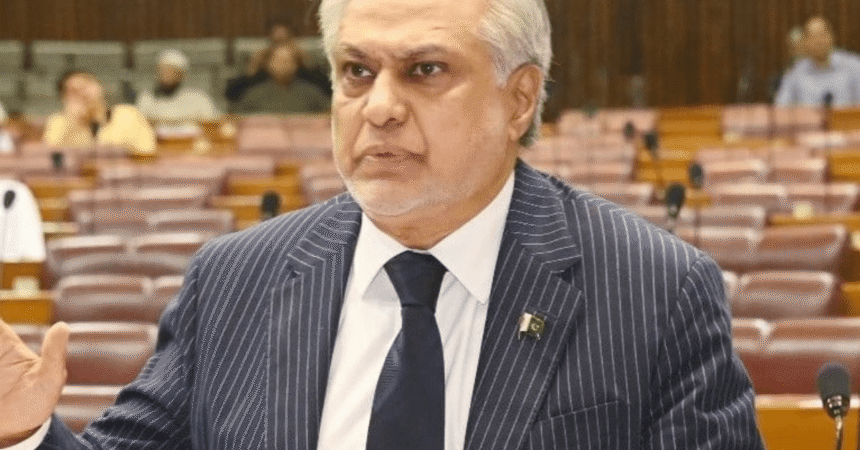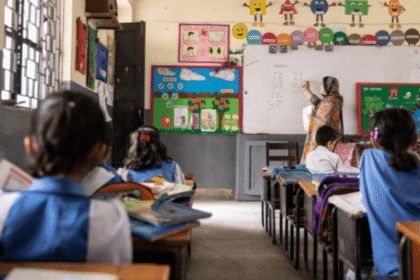Introduction
In a notable development in Pakistani diplomacy, Deputy Prime Minister and Foreign Minister Ishaq Dar will forgo attending the 79th session of the United Nations General Assembly (UNGA) in New York. This decision allows him to prioritize preparations for the upcoming Shanghai Cooperation Organization (SCO) summit, set to take place in Islamabad. Meanwhile, Prime Minister Shehbaz Sharif will lead Pakistan’s delegation at the UNGA from September 23 to 27, 2024, a platform where world leaders gather to discuss pressing global issues.
The Significance of the UNGA
The United Nations General Assembly serves as a critical forum for member states to engage in dialogue and negotiations on a wide range of issues, from international peace and security to sustainable development. It is a unique opportunity for nations to present their positions on global challenges and to coordinate collective action.
Themes of the 79th UNGA Session
The 79th session will focus on various pressing themes that resonate across nations:
- Global Security: Given the current geopolitical tensions, discussions on international security and peacekeeping will be at the forefront. Nations will be expected to address issues like terrorism, conflict resolution, and peacebuilding initiatives.
- Climate Change: With climate change being an existential threat, discussions will include strategies for mitigating its effects, promoting sustainable development, and enhancing resilience against climate-related disasters.
- Economic Recovery: In the wake of the COVID-19 pandemic, economic recovery remains a key topic. Countries will discuss ways to revitalize economies, promote trade, and support vulnerable populations.
- Human Rights: The UNGA will also address ongoing human rights issues globally, focusing on the protection of vulnerable groups and the promotion of fundamental freedoms.
Prime Minister Shehbaz Sharif’s Agenda at UNGA
Prime Minister Shehbaz Sharif’s participation in the UNGA is pivotal for Pakistan, allowing him to present the nation’s stance on several critical issues:
1. Commitment to Multilateralism
During his address, PM Sharif will emphasize Pakistan’s unwavering commitment to multilateralism, advocating for collective action to tackle global challenges. He will highlight the importance of the UN as a platform for dialogue and cooperation among nations.
2. Focus on Long-Standing Issues
A significant part of the PM’s address will be dedicated to addressing long-standing issues on the UN Security Council’s agenda:
- Palestine: The Palestinian struggle for self-determination and statehood remains a core issue for Pakistan. PM Sharif will reiterate Pakistan’s support for Palestinian rights and the need for a fair resolution to the conflict.
- Jammu and Kashmir: The situation in Indian Illegally Occupied Jammu and Kashmir (IIOJK) will also be a focal point. PM Sharif will advocate for international attention and intervention in resolving the human rights abuses and political struggles faced by the Kashmiri people.
3. High-Level Meetings and Bilateral Engagements
Beyond his address, PM Sharif will engage in several high-level meetings during the UNGA. These include:
- Existential Threats from Climate Change: He will participate in discussions focused on the challenges posed by climate change, particularly sea-level rise, which threatens many coastal nations, including Pakistan.
- Bilateral Meetings: The PM will hold bilateral meetings with various world leaders, discussing areas of mutual interest, trade, security cooperation, and investment opportunities.
- Engagement with the Pakistani Diaspora: The Prime Minister also plans to connect with members of the Pakistani diaspora, fostering relationships that could benefit the country through remittances, investments, and knowledge transfer.
Deputy Prime Minister Ishaq Dar’s Responsibilities
While PM Shehbaz Sharif is engaged in the UNGA, Deputy Prime Minister Ishaq Dar’s focus will shift towards preparations for the SCO summit. His role is crucial for ensuring Pakistan’s diplomatic success on the regional stage.
1. Prioritizing the SCO Summit
The SCO, which includes key regional players such as China, Russia, and several Central Asian countries, serves as a significant platform for promoting regional cooperation in areas like security, economic collaboration, and cultural exchange.
2. Diplomatic Engagements
Ishaq Dar’s responsibilities during this period will involve:
- Participation in High-Level Events: He will represent Pakistan at various ministerial meetings, including:
- The Summit of the Future, convened by the UN Secretary-General.
- The OIC (Organisation of Islamic Cooperation) annual coordination meeting.
- Ministerial meetings of the G77 and China, and the Non-Aligned Movement.
- Strengthening Bilateral Relationships: Engaging with counterparts from SCO member states will be crucial for enhancing Pakistan’s diplomatic relations and fostering cooperation in trade, security, and counter-terrorism.
Implications of the Dual Focus
The decision for Deputy Prime Minister Ishaq Dar to skip the UNGA session has several implications, both for Pakistan’s foreign policy and its international standing.
1. Regional Focus vs. Global Engagement
Ishaq Dar’s absence from the UNGA underscores Pakistan’s strategic pivot towards regional diplomacy, particularly within the SCO framework. The organization plays a vital role in addressing security concerns and economic collaboration among member states, which are crucial for Pakistan’s national interests.
2. Balancing Global and Regional Diplomacy
While PM Sharif addresses global challenges at the UNGA, DPM Dar’s focus on the SCO highlights the importance of regional dynamics in shaping Pakistan’s foreign policy. The balance between global and regional engagements will be essential in navigating the complexities of international relations.
3. Strengthening Pakistan’s Image
Active participation in both forums—UNGA and SCO—can enhance Pakistan’s image as a proactive player in international diplomacy, capable of engaging on multiple fronts simultaneously. It positions Pakistan as a nation committed to addressing both global challenges and regional stability.
Conclusion
The diplomatic landscape for Pakistan is currently marked by significant engagements at both the United Nations and the Shanghai Cooperation Organization. Prime Minister Shehbaz Sharif’s upcoming participation at the UNGA offers a platform to address critical issues of national importance, reaffirming Pakistan’s commitment to multilateralism and cooperation.
Simultaneously, Deputy Prime Minister Ishaq Dar’s focus on the SCO summit emphasizes the importance of regional diplomacy, ensuring that Pakistan remains an active participant in fostering cooperation among neighboring states. This dual approach not only strengthens Pakistan’s diplomatic efforts but also addresses the multifaceted challenges the country faces today.
#UNGA79 #PakistanDiplomacy #SCO #ShehbazSharif #IshaqDar #InternationalRelations #Multilateralism #GlobalPeace #ClimateChange #Pakistan







